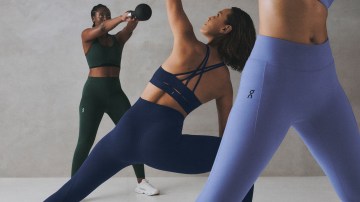On Monday, OpenAI launched Instant Checkout, a feature that lets ChatGPT users buy products while in an AI conversation, instead of clicking out to a website. It debuted in the U.S. with Etsy sellers and will soon extend to Shopify merchants including Glossier, Skims, Vuori and Spanx. Because Shopify powers the online stores of several luxury brands, it may eventually extend to labels like Victoria Beckham and Jacquemus, according to Shopify’s merchant listings.
For the 700 million people globally who use ChatGPT weekly, according to OpenAI’s September 2025 product blog, Instant Checkout compresses discovery and transaction into a single flow. By comparison, Google Search has roughly 1 billion weekly users, according to industry estimates.
Luxury is preparing for the impacts of the shopping update. Until now, houses have focused their consumer-facing AI efforts on the discovery stage and customer service. For example, Zegna was an early mover in 2023 when it worked with Microsoft to roll out AI-powered clienteling tools for store associates. Ralph Lauren followed in June 2025 with “Ask Ralph,” an AI styling assistant integrated into its U.S. app. And on Tuesday, Moncler relaunched its global e-commerce site with generative AI powering product storytelling, video content and personalized recommendations with the help of Google.
None of these initiatives enables checkout. That gap is set to close quickly with this announcement, according to experts.
“One-third of consumers are already using personal agents like ChatGPT to research brands and products,” said Rob Garf, head of strategy and insights at AI platform Cordial, which enables customer messaging on the e-commerce sites of brands including Revolve and L.L. Bean. “Twelve to 18 months ago, that number was effectively zero. We have never seen consumer adoption move this fast.”
That rapid shift is forcing luxury to confront a key tension: how to preserve brand equity when the customer journey risks being reduced to a single-item purchase inside a chat window.
“Luxury brands rely on storytelling and experience,” said Ellie Williams, svp of product management at Rithum, a global commerce enablement platform that works with Neiman Marcus and Zalando. “Instant Checkout does not replace that, it simply gives customers who already know what they want a faster way to buy. The brands that balance convenience with experience will keep their image and meet growing consumer expectations.”
Geography will also shape adoption. Williams noted that, in the U.S., shoppers often prioritize convenience, so adoption could be relatively fast. In Europe, luxury customers place greater emphasis on heritage and service, and adoption may take longer. However, history shows that once brands prove they can go online without losing exclusivity, European customers follow.
In Asia, uptake is expected to be fastest, given the mobile-first culture and higher comfort level with new technology. “Luxury will [aim to] adapt the model to local expectations while keeping brand integrity intact,” Williams said.
OpenAI has confirmed there will be a “small fee” on each transaction, but has not disclosed the rate. For luxury, where margins are already high, that fee is less of a concern than brand control. “If the platform protects the brand’s image and storytelling, the economics make sense — and ignoring it could mean missing out on customers who are ready to shop in new ways,” Williams said.
The regulatory picture is another open question. The FTC and the European Commission are already investigating AI companies, and their oversight of AI-driven shopping seems inevitable. On September 12, the FTC opened a probe into OpenAI, Google, Meta and others to examine how their AI/chatbot systems address risks to children and teens, including how they monitor, monetize and moderate conversational agents. There is also increasing scrutiny over whether OpenAI and ChatGPT comply with the E.U.’s AI Act, especially in disclosing training data and model documentation. The regulations for general-purpose AI went into effect in August 2024.
“Regulation is almost certain,” Williams said. “The focus will be on transparency and consumer protection, making sure people understand why products are being recommended and that their data is handled responsibly. For luxury brands, that kind of oversight could actually help, since trust and integrity are central to maintaining brand equity.”
Meanwhile, OpenAI is also preparing to compete with TikTok. Sora, OpenAI’s tool that creates videos using AI, was first introduced in December 2024. It will soon expand into a standalone app, according to new insights from Wired. The new version, Sora 2, features a vertical video feed, swipe-to-scroll navigation and algorithmic recommendations, echoing TikTok’s design but serving only AI-generated video content. Combined with Instant Checkout, it sets up a closed ecosystem of inspiration, discovery and purchase inside OpenAI.
TikTok launched its U.S. Shop in September 2023, driving sales for beauty and mass-market brands while luxury houses hesitated due to counterfeits and inconsistent presentation. An AI-generated feed raises similar risks around copyright, brand safety and unauthorized sellers, yet it also offers scale at a time when acquisition costs are rising.
International rollout of Instant Checkout is expected starting in 2026, beginning in Europe. For luxury executives, the question is no longer whether AI will reshape commerce but how quickly to adapt and under what terms.




